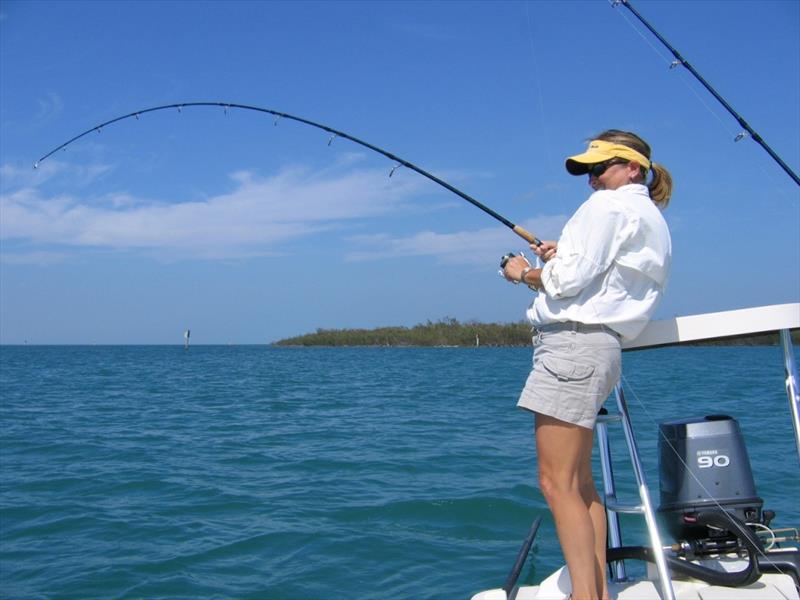
National Fishing and Boating Week 2019
by NOAA Fisheries 10 Jun 2019 22:49 UTC

Woman fishing in Gulf of Mexico © Florida FWC
It's National Fishing and Boating Week! Check out this leadership message from Assistant Administrator for NOAA Fisheries Chris Oliver and learn how we support recreational fishing opportunities across the country.
National Fishing and Boating Week marks a fun and informal start to summer for me and many of us at NOAA Fisheries. During my 27 years in Anchorage, it was the start of a few short months of non-stop fishing with family and friends during long summer days.
As Assistant Administrator for Fisheries, National Fishing and Boating Week gives me a chance to highlight some of the great work our agency and partners are doing to promote sustainable recreational fishing and boating. For example, during the Miami Boat Show this past February, Fisheries and NOAAs Office of National Marine Sanctuaries entered a formal partnership with the National Marine Manufacturers Association, Recreational Fishing and Boating Foundation, Association of Fish and Wildlife Agencies, and American Sportfishing Association. Over the next 5 years well be working with these organizations to highlight and expand sustainable recreational saltwater fishing and boating opportunities, as well as marine ecosystems across the nation.
To kick off National Fishing and Boating Week 2019, NOAA Fisheries is releasing six region-specific saltwater recreational fisheries engagement plans highlighting where and how our agency will be working to better engage fishermen. Activities include everything from roundtable meetings to on-the-water events. Some of the activities our regional offices will undertake this year include: co-hosting fishing events for kids and veterans, collaboratively surveying fish populations with for-hire fishing boat operators, helping to train potential future fishery management council members, and conducting workshops with anglers to understand how regulatory changes might improve life on the water.
While our regional offices were developing engagement plans, our national recreational fisheries team joined with the Office of Habitat Conservation to identify and fund habitat restoration projects for recreationally important species of fish in North Carolina, South Carolina, and Alaska. These projects will get underway in 2019 and directly include anglers in hands-on restoration work. They also developed a partnership with the Bristol Bay Fly Fishing Academy to teach local youths about ecology, fisheries science, and habitat conservation, while teaching valuable guiding skills that support local employment in southwest Alaska.
Fisheries great work supporting sustainable recreational fishing is only one facet of the support NOAA provides anglers. Wherever you fish in our coastal and ocean waters, NOAAs tide tables, navigational charts, sea surface temperature data, weather radio, and forecasts provide critical information to help you find the bite and get you safely to and from your favorite fishing spot.
I encourage you to start your summer with a fishing trip during National Fishing and Boating Week 2019, and Ill see you out on the water.
Additional Resources: